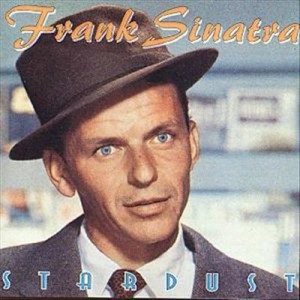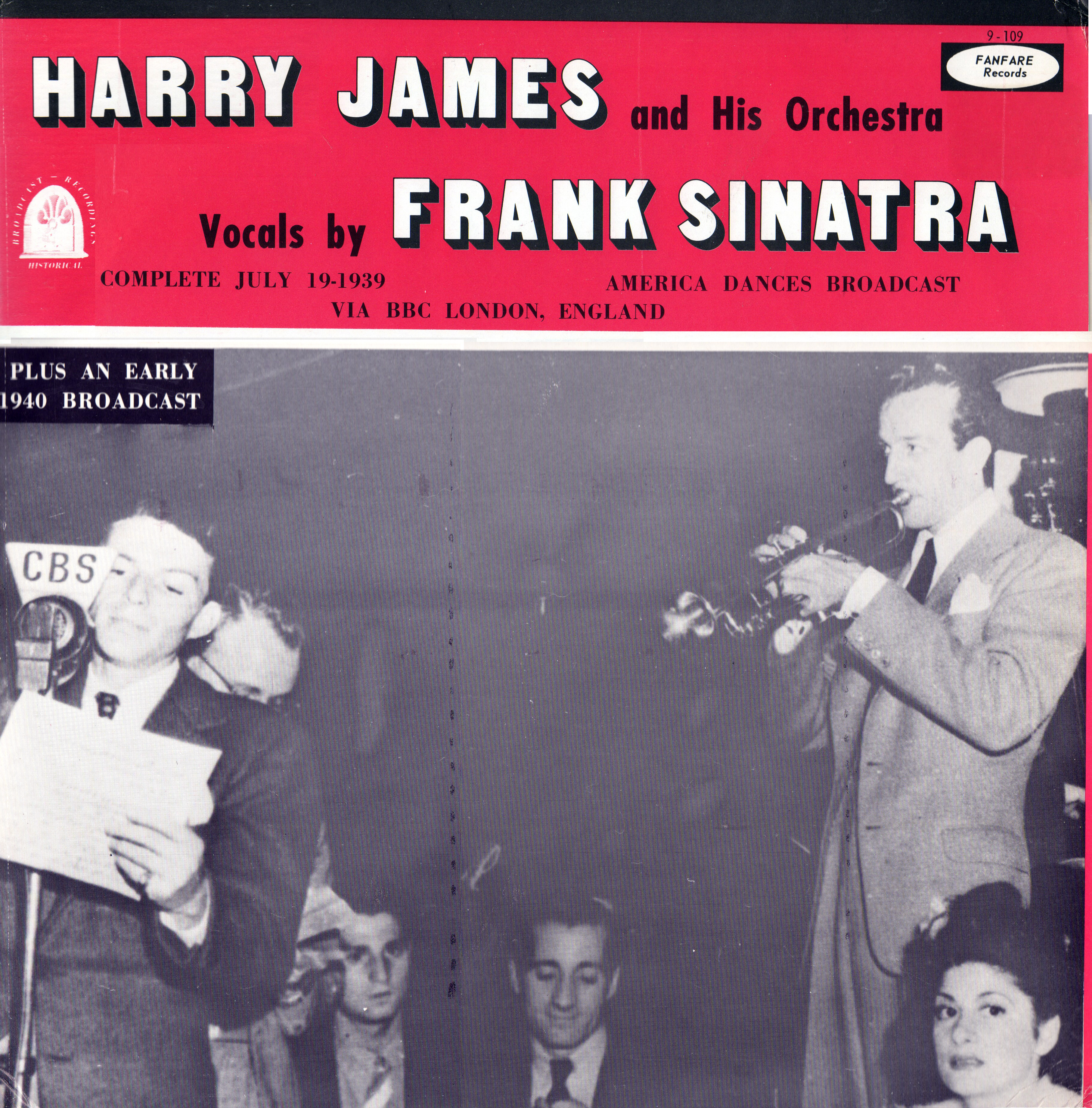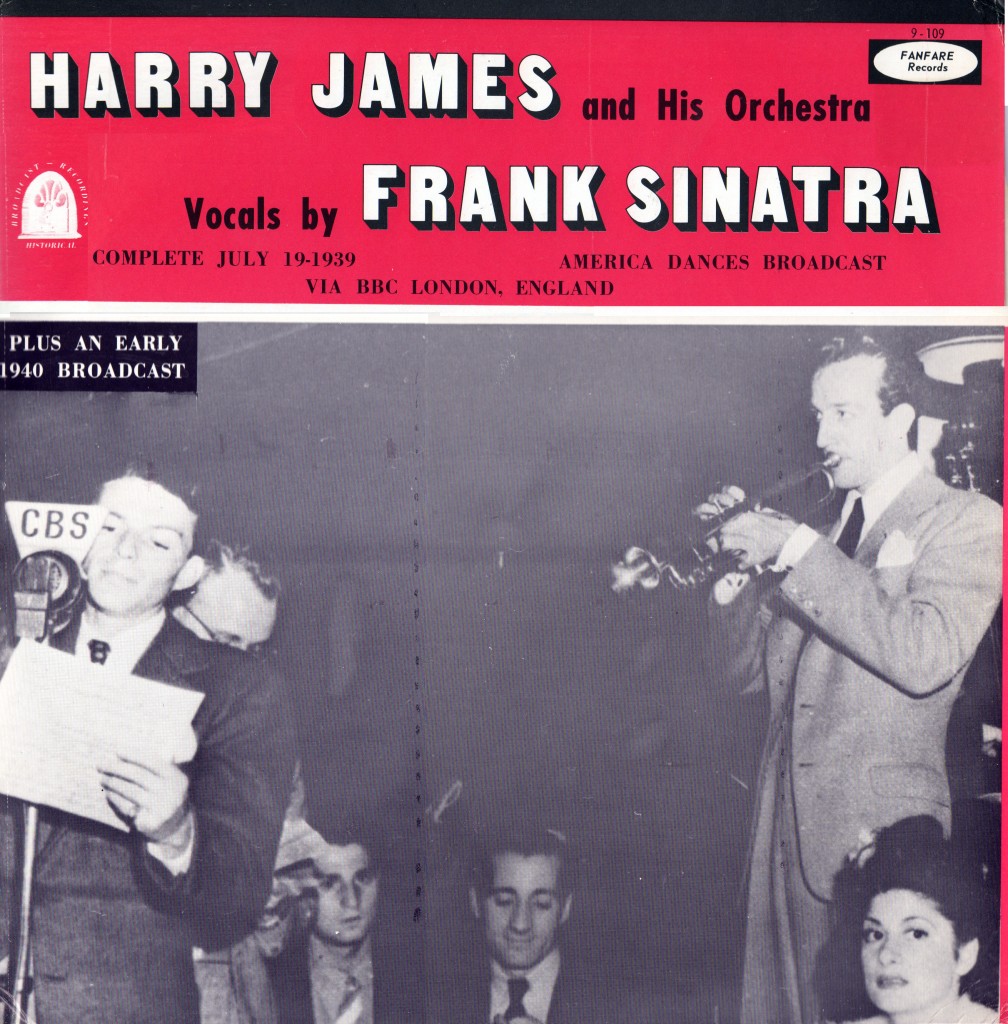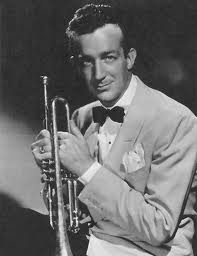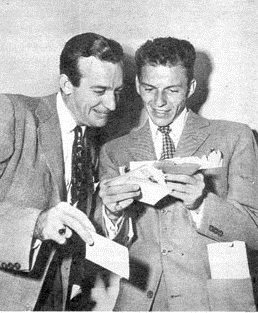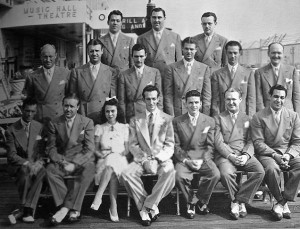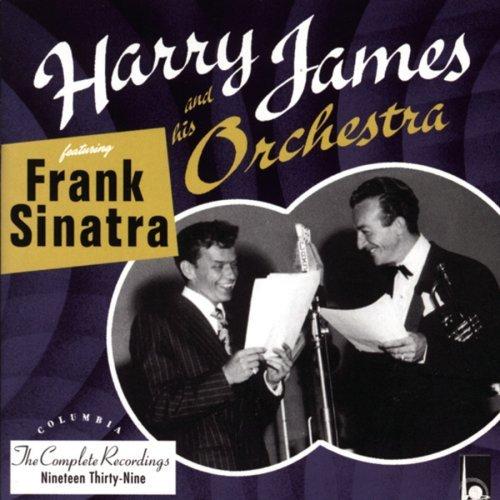Stardust – Frank Sinatra
Stardust, originally “Star Dust”, was firstly a song composed by Hoagy Carmichael in the year 1927. Two years later, in 1929, Mitchell Parish wrote the lyrics for Stardust. It is certainly a standard and was sung and recorded by many artists of jazz-swing era, including Frank Sinatra. Stardust was not just “one” of the songs that Sinatra sang, but a sentimental ballad Sinatra performed almost in perfection.
Frank Sinatra first sang Stardust when he was in the band of Harry James. In fact, the very first song Frank sang with Harry James’ orchestra was Stardust. Jack Palmer, a trumpeter of Harry James said: “Just before the second show, Harry came out and introduced him as the new singer with the band. Frank then joined us at the next date we had, which I believe was in New Haven, Connecticut. I’ll never forget how Harry introduced him to the audience. He said, “Ladies and Gentlemen, this is our new vocalist, and we don’t have any arrangements for him as yet. Frank, do you think we can scare something up for you to sing?” Sinatra called out “Stardust,” which is not the easiest song to sing. Frank gave us the key and the piano and rhythm section began, and we just tried to get some background to hold it all together.
A version of Stardust can be found in Frank Sinatra and Harry James Complete Recordings. Compared to later versions, this Stardust version has a noticeable faster tempo.
Stardust had its part in Jo Stafford’s memories as well. Jo Stafford says: “We knew we were going to have a boy singer, but we didn’t know anything about him. We didn’t even meet him before the first show. Out came this rather frail looking young man with a whole bunch of hair. I just thought, hmm kinda thin. But he sang no more than a few bars of “Stardust” and a great hush fell over the theatre. Nobody had ever sounded like that before.”
Herb Sanford, Tommy Dorsey’s radio producer (after hearing Sinatra singing Stardust): “Boy, this is something else.”
Apparently, Sinatra sang Stardust to impress people after joining both Harry James’ and Tommy Dorsey’s orchestra.
In 1940, 11th of November, Frank Sinatra recorded Stardust with Tommy Dorsey Orchestra, and showed us how Stardust should be performed; slower tempo, and a slow start of “Some-times-I-Won-der-Why-I-Spend The-lonely-Nights”. In this version, Sinatra starts to sing with “The Pied Pipers”, and just in the middle of “Nights”, Pied Pipers stop, and Frank Sinatra completes the word “Nights” in an amazing way, with a brilliant voice. The “You were in my arms” part is also quite notable. Stardust is one of the leading successful songs of Tommy Dorsey era of Frank Sinatra, and was a big hit in the year 1941.
“The 1940 “Stardust” is strictly the “Smile Again” layout applied to another tune. And most effectively too, judging by its effect on Buddy Rich, who was hardly the band’s sensitivity specialist. Rich, who prided himself on being hyper masculine and downright ant sentimental, later confided to friend Mel Torme that Sinatra’s rendition of “Stardust” had him hiding his face so that no one would catch a glimpse of his tears.” (SINATRA! The Song Is You by Will Friedwald)
A famous Stardust version of Sinatra is from 1943, performed in “Your Hit Parade”. It was presented by Lucky Strike, and the video of it is available.
Frank Sinatra recorded Stardust again in his album “Sinatra and Strings” in 1962 under Reprise Records. Don Costa arranged and conducted the song this time, yet this time Sinatra sang only the verse of the song. (And now the purple dusk of twilight time…) Only the verse itself with a beautiful string section is enough, as the recording shows us.
“Costa penned an elaborate introduction, proving he wasn’t averse to writing a verse to a verse for the Voice. This intro was a key reason why Sinatra guitarist Tony Mattola cited “Stardust” as his favorite Sinatra performance. “Don sets it up like almost a tone poem in the beginning,” he said, “and it could stand by itself as a classical piece.” Then Frank just sings this lovely verse, and then Don ends it, as he does in the beginning. Whoever thought of that idea-whether it was Frank or Don or whoever-it’s completely original and absolutely beautiful.” (SINATRA! The Song Is You by Will Friedwald)
Stardust would never be a choice for Sinatra’s concerts, but the brilliant versions from 1940’s are definitely more than enough.

